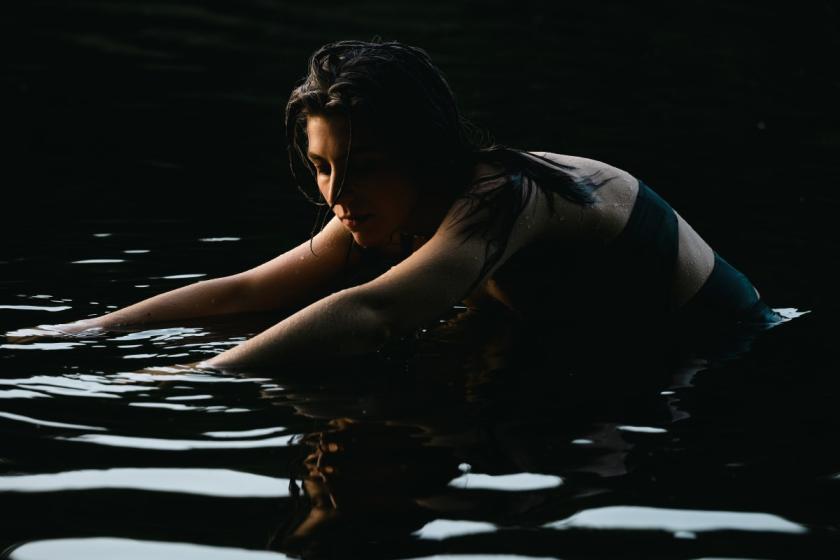On a wet, dreary, winter evening in north London, at Islington Assembly Hall, a crowd gathered for an ethereal although not always engaging set by Julia Holter.
The opener was Nyokabi Kariüki, an experimental musician who played with loops, found sound, and a haunting, keening voice. She introduced her newer album by discussing her interest in language and the complexities of it, of her knowledge of English and Swahili, something that was explored well in the pieces that she played, solo onstage.
Julia Holter came in without preamble and without introduction, standing behind her keyboard in a Vampire’s Wife-esque black sequin dress. Projected onto the backdrop behind her, her bassist, percussionist/drummer, and keyboard/synth/bagpipe player was a disjointed, abstracted film mainly showing close ups of hands. So far so witchy.
The first song was the first on her newest release (Something in the Room She Moves), "Sun Girl", a record born out of the Covid pandemic and the arrival of her daughter. It set the tone perfectly, with a shimmering, hypnotic sound that devolved into a gentle, percussive melt, its end punctuated by an odd but perfectly placed bagpipe, played by her partner, Tashi Wada.
From here, Holter moved to her most commercially successful album (chart-wise), Have You In My Wilderness, and the track "Silhouette", a comfortable lilt of a song with, for Holter, a more conventional structure. She is a wonderful artist in her own right but here, as with other songs, you can see her similarity to other great contemporary female vocalists, like Angel Olsen or Jessica Pratt.
Throughout, Holter maintained this movement between albums, the very new and the very old. The title track from Something in the Room… showed a deep surrealism, echoed in "Marienbad" (from 2012’s Ekstasis), both giving life to inanimate objects, both playing with a baroque, retro sci-fi sound. The latter has more than a feel of Michael Nyman and Peter Greenaway’s Draughtman’s Contract union, with its baroque keys and odd, anachronistic instrumentalisation.
A particular highlight was the excellent bass and drums/percussion played throughout, by Devra Hoff and Elizabeth Goodfellow respectively. The former was showcased well in "Evening Mood", with a Seventies/Eighties Scott Walker meets Blue Nile feel about it, a jazz-like sound that came closer to that of a double bass. At points, all of these together had more than a feel of the prog about them.
A slight fly in the ointment (although it felt more like awkwardness or shyness more than anything) was Holter’s minimal engagement with the crowd. However, there was a great moment when she described playing "Betsy on the Roof" to four people in an art gallery when she started out. This, one of the two songs she played in her encore (the other a song they’d never played before that she described as “really silly”), was a great crescendo of a song, crashing in experimental perfection at the end.














Add comment